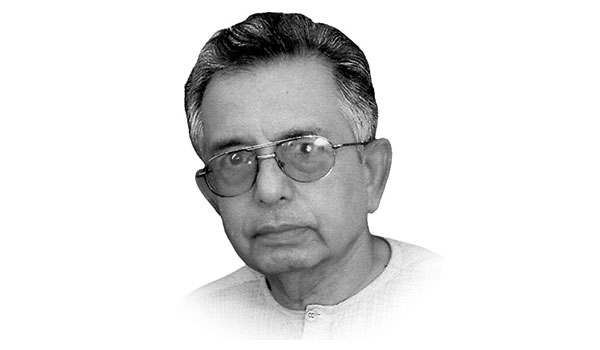Endgame or a fresh start
THE article titled “Pakistan is a country which is not well understood in the West” by Tom Fowdy published in this newspaper on 30 March fairly describes the situation in Pakistan.
However, one feels that some of his observations and predictions need to be taken with a pinch of salt.
For example, in connection with the revelation made by Imran Khan during his 27 March speech, and his waving of a letter threatening his government, but without revealing the contents of the letter or identifying the writer, and his claim that foreign powers are behind the attempt to remove him from power, Tom Fowdy says:
“To any onlooker such a claim appears to be a fanciful and convenient excuse. The situation of course is much more complex.
Pakistan’s politics has been prone to such frequent upheavals for the fact it strives to reconcile many different ethnic identities under one coalition of Islamic identity.
This includes Pashtuns, Punjabis and Balochi peoples, creating political pulls against the state in the form of separatist movements and other forms of unrest.
This underlying instability has led Pakistan’s military to become the principal “backbone” in holding the state together and its most powerful political institution, which has often cycled between seizing power and restoring coups.
If the government of Imran Khan collapses, such a takeover again is not an impossibility.
” For a start, the writer has failed to name Sindh province, which comes second population-wise, and where slogans have occasionally been raised towards formation of Sindhu Desh, though not pursued in a militant manner like in Balochistan.
And of course, there have been no separatist movement in Pakistani part of Punjab which, in the present-day Pakistan, holds a larger population than that of all other provinces combined.
And because of this large population, in a way, Punjab is Pakistan. However, the situation was different in the original Pakistan, which included the eastern wing, having population larger than the western wing’s.
Also, while the writer is right declaring Pakistan’s military to be the principal backbone in holding the state together and its most powerful political institution, General Ayub Khan has been guilty of creating circumstances for the separation of our eastern wing, with his nominated General Yahya Khan accomplishing the break-up of Pakistan in the most shameful manner.
However, the last military coup was rather of the then Prime Minister Nawaz Sharif’s making.
While General Musharraf, the then commander-in-chief of Pakistan, was returning from an official tour of Sri Lanka by a PIA flight with a lot of civilian passengers, Nawaz Sharif appointed another General as the new commander-in-chief and refused landing permission to the flight carrying Musharraf, and worse than that, asked the flight, with limited fuel left, to be diverted to somewhere outside Pakistan.
Of course, other Generals could not let their chief treated this way. They rushed to the airport, took over control and the flight landed in Karachi.
The rest is history.However, after the above coup, there have been no military coups despite the fact that there were many occasions when the army could have taken over, if it wanted to.
And it seems that the military has learned its lesson and is no longer interested in making such moves.
So, Tom Fowdy’s fear that collapse of Imran Khan’s government could bring in a military takeover seems entirely unfounded.
Moreover, the appearance of his article just three days after Iman Khan talked about the foreign security threat also seems quite strange, to say the least.
Imran Khan and his team have been talking of a trump card the details of which the PM was supposed to reveal either on the eve of March 27 or early on March 28.
Could the disclosure of this foreign conspiracy – in which locals and Pakistanis abroad were also alleged/suspected to be involved – be the trump card that PTI leaders have been talking about?
If so, the campaign seems to be quite well-coordinated even if lacking substance. After all, even if the threat is not imagined but real, it won’t be for the first time in Pakistanis history.
And on receipt of such a threat, the PM’s duty would be to deal with it effectively but quietly and not just to wail over it in public meetings and in the media.
Additionally, if there are any local collaborators, all legal means should be used against them.
Instead, the supposedly strong leader seems to be just crying before the audience, perhaps to win their sympathy against the opposition.
Is this the reason why this no-confidence motion is being delayed as much as possible? And surprise, surprise?
We hear that a resignation has been procured from the hand-picked Chief Minister Punjab, Usman Buzdar who was considered indispensable and declared to be Waseem Akram-plus.
Though the nominated chief minister Chaudhry Pervaiz Elahi has not taken over his position yet – because the resignation of Usman Buzdar has not been processed – the sudden move seems quite surprising.
The man who Imran Khan had refused to change despite frequent reports of bad governance and more – even from his own senior party leaders – has been shown the door in such a hurry, which means that Imran Khan wants to hang on to power, whatever the cost.
Moreover, taking back the lawmakers who Imran Khan had earlier accused of corruption and selling their conscience displays the same approach, which is based solely on expediency.
The parting of ways by coalition partner MQM has further dented the already slim possibility of Imran Khan surviving the no-confidence motion.
Perhaps the only honourable way out for him is to resign and help cobble up a new coalition government comprising competent persons of integrity from various parties.
— The writer is senior political analyst based in Karachi.










